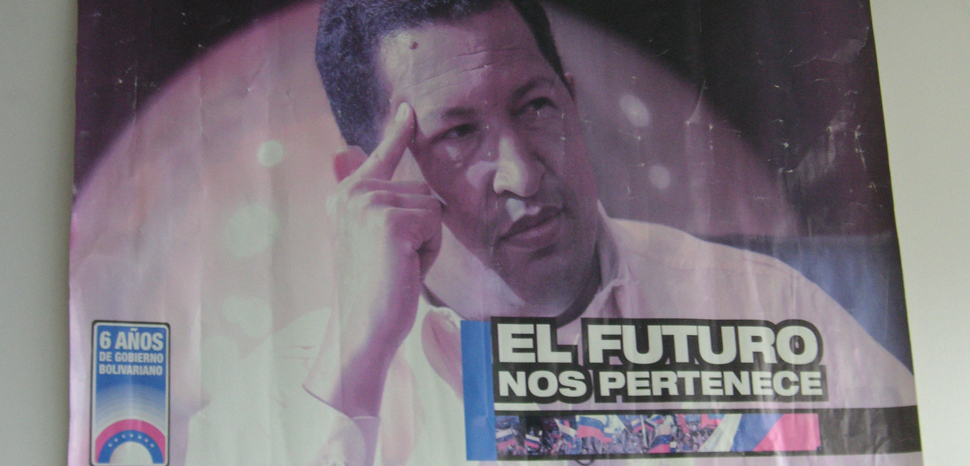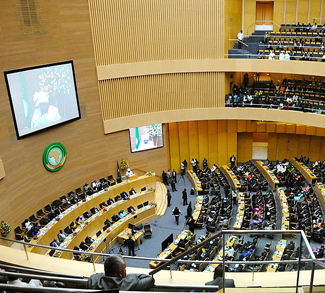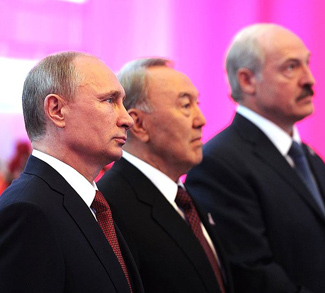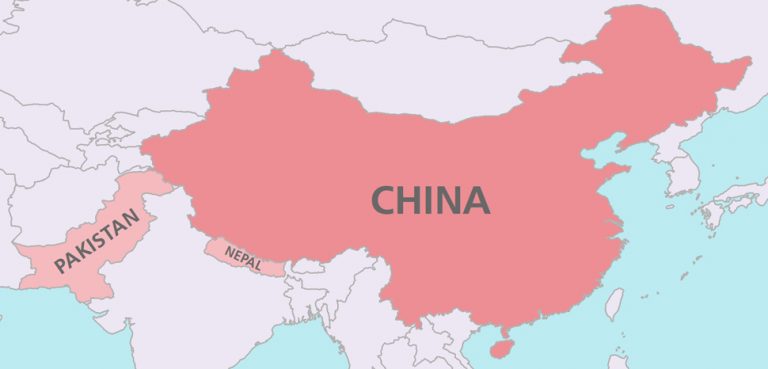Much has been said about the behavior of Venezuela’s Bolivarian regime, its evolving character, its dramatic economic mismanagement, and the impact it has projected throughout the American hemisphere, including its bilateral ties to Cuba.
At a first glance, it would seem that – based on classical international relations scholarship referents when it comes to assessing national power such as population, territory, natural resources, and sheer economic size – Venezuela is the senior partner. Yet a crucial factor is missing to examine how the balance of power truly works in the dynamic framework of said bilateral relation.
Beyond the evident ideological, political, and diplomatic affinities between the rulers of both countries, the crucial factor that has been overlooked even by most experts is the strong presence and operational intensity of Cuban intelligence agencies in Venezuela. A different picture – one that challenges conventional wisdom – might emerge when one considers this angle.
Such a topic is important considering its deep geopolitical implications. It also raises pertinent questions: What if Venezuela is not necessarily the senior partner after all? The fact that it has not been addressed is perhaps a result of the intrinsically covert nature of intelligence activities. Moreover, both regimes are not precisely known for their compliance with basic transparency standards. In practice, that means relevant and reliable information about it is notoriously scarce. Nevertheless, the analysis of what open sources provide is useful to elaborate a more or less accurate – yet broad – situational assessment.
Profile of Cuban Intelligence Services
According to conventional wisdom, effective foreign intelligence capabilities are usually associated with great powers. The American CIA, the British MI6, the Israeli Mossad, the Russian SVR and the like often come to mind whenever the term is mentioned. Of course, such perception is hardly unjustified. In contrast, Cuba is certainly far from being a great power, yet the reach of its intelligence services must not be underestimated.
The Cuban Intelligence Directorate – known as G2 – was initially trained by the Soviet KGB and the Stasi, the East German Ministry of State Security, the strongest intelligence agencies of the Socialist bloc during the Cold War. Moreover, the resilience that has played a key role in the survival of the Cuban communist regime for six decades can be at least partially attributed to its intelligence services’ abilities to monitor internal dissent, consolidate political rule, and keep at bay external rivals. It is even said that Fidel Castro himself was the target of hundreds of unsuccessful assassination attempts.
It is known that the Cuban intelligence community recruits promising college students, especially from social science programs. Its training and methods are based on the development of professionalism rather than improvisation, unlike other Latin American intelligence agencies. Furthermore, a heavy ideological ingredient promotes a strong morale.
Another aspect worth emphasizing is that Cuban intelligence has not just assumed a defensive position. Actually, it has been remarkably active abroad for decades. For instance, it supported several Marxist insurgencies in Central and South America during the Cold War. It has also managed to infiltrate US national security agencies and Cuban American political groups hostile to Havana’s socialist regime.
Last but not least, Cuban intelligence supported the military involvement of the country’s armed forces in extra-regional operational theatres such as Angola, Vietnam, and even the Middle East during the Yom Kippur War.
In short, despite Cuba’s structural limitations – including its precarious economy – the country’s intelligence services represent a big asset in terms of power projection. In effect, they need to be understood as a substantial force multiplier.
Precedents of Cuban Interests in Venezuela
The interest of Cuba in Venezuela is not new. Aside from cultural common denominators and geographic proximity, Venezuela’s energy resources are attractive from Havana’s perspective. Additionally, it is important to note that Venezuela was precisely the first country that Fidel Castro visited after having overthrown Fulgencio Batista. Nevertheless, a Cuban request for economic assistance was rejected by Caracas.
Then, other unconventional measures were implemented. In fact, Cuban military and intelligence personnel backed two forcible attempts to provoke regime change in Caracas through the instigation of an armed popular uprising. Both were ultimately neutralized by Venezuelan armed forces. These incidents surely must have shaped the perception of Venezuelan generals, admirals, and senior intelligence cadres: the Cuban government was acting as a direct threat to Venezuela’s national security.
Decades later, changing circumstances in global geopolitics rekindled Cuban strategic interests in Venezuela. In other words, the collapse of the Soviet Union left Cuba without reliable geopolitical patronage and also without generous economic support.
The most pressing concern for Havana was that its energy security – which until then had been covered by Moscow under favourable conditions – was now at stake. A “special period” of severe budgetary restrictions had to be applied. Nevertheless, prolonged economic distress could endanger the political survival of the Castro regime. Hence, a solution needed to be found and preferably before discontent could fuel unrest or worse.
The surprise coup attempt launched by Venezuelan Colonel Hugo Chavez back in 1992 was a major political earthquake, even though it did not produce its intended outcome. In his quest to find political support for his so called Bolivarian movement, Chavez visited Havana and was euphorically received by Fidel Castro himself, even though he had voiced support for the then sitting Venezuelan President Carlos Andrés Pérez, the leader Chavez intended to remove from power.
While Chavez was likely only feeding his charismatic ascent to political stardom, the Cuban ruler – guided by foresight – must have perceived a valuable strategic opportunity. Hence, the Cuban state started investing in the career of an ideological friend that one day could reach an important position. In contrast, Chavez apparently started viewing Castro as some sort of mentor. There might have been a genuine mutual sympathy between them but geopolitics is ultimately ruled by impersonal forces. That was certainly clear in Havana but it is debatable if the same vision prevailed in Caracas.
Indeed, once Chavez became president several years later, bilateral ties to Cuba were significantly strengthened. The Bolivarian regime started providing economic support for Havana, including the supply of oil under very privileged conditions, even though the global price of oil was sharply rising back then. Thus, Chavez can be regarded as the economic saviour of the Cuban revolutionary regime. Whether he was aware of that or whether he was instead playing that role rather unwittingly is hard to determine but the dictates of political realism indicate it is a possibility that cannot be dismissed.
In exchange for the generous Venezuelan backing, Cuba began sending doctors, sport trainers, technicians, and engineers to Venezuela. Needless to say, the arrival of Cuban personnel to Venezuela provided an ideal cover in which to place intelligence operatives.
Turning Point and Increasing Presence
However, the increasingly radical and intransigent position assumed by the Bolivarian government alienated several sectors of Venezuelan society, including the middle classes, the local business community, and – more importantly – some factions of the country’s top military echelons and the intelligence apparatus, who were deeply distrustful of Cuban influence because of the aforementioned historical precedents. Maybe such suspicions were not unsubstantiated after all.
This motivated an attempt to remove Chavez from power. The coup ultimately failed but, during critical hours, opposition forces surrounded the Cuban embassy and the leaders that briefly assumed power decided to interrupt the flow of Venezuelan oil to Cuba. What matters is that direct Cuban influence – either overt or clandestine – was already an acknowledged political reality by all relevant stakeholders.
The Bolivarian government was promptly restored thanks to a superior coordination in terms of mobilization and, motivated by a revanchist agenda, embraced even more uncompromising positions. In this context of growing polarization, a major turning point took place: The Cuban presence in Venezuela’s strategic circles was enhanced.
Cuban military personnel started arriving at Venezuelan bases. A new military doctrine – similar to that of Havana – was adopted. Ideological and military training was now imparted by Cuban instructors. Furthermore, with the assistance of Cuban agents, the Venezuelan intelligence community – including both its civilian and military branches – was remodeled and purged of officials deemed ‘counterrevolutionary.’ It has even been claimed that Cuban specialists were active in the Venezuelan presidential situation room, involved in tasks related to protecting the regime and monitoring relevant political developments.
It can be argued that, in his paranoia, Chavez considered that he had no choice but to turn to his Cuban allies now that he no longer trusted many Venezuelan governmental sectors. In contrast, the Cubans harnessed this situation as an opportunity to augment their degree of strategic influence in the most critical sectors and nerve centers of the Venezuelan state.
Shortly afterwards, there were Cuban “advisers” in several Venezuelan embassies and ministries. The ruling Bolivarian elite received Cuban bodyguards and doctors. In contrast, the Venezuelan military presence in Cuba was negligible since all it entailed was an attaché office. In other words, the strategic relation – in matters of security, intelligence and military affairs – had become profoundly asymmetric, to say the least.
Some analysts might describe this situation as some form of ‘occupation’, considering that Cuban presence in Venezuela had reached decisive proportions, even though Havana had not even fired a single shot. The Cubans were not just influential; they were now prominently involved in the decision-making process at the highest levels. As a result of a political miscalculation by Chavez and his closest collaborators, Venezuelan national sovereignty may have been compromised to a significant degree.
Other revealing facts include the Cuban role in the conformation of the paramilitary cells called ‘Bolivarian circles,’ groups of armed civilian militias responsible for protecting the Chavez regime and intimidating his opponents as well as in the implementation of draconian measures of social control, such as the connection between the issuance of official IDs and the introduction of pervasive digital surveillance systems.
Concerning foreign policy, Caracas started replicating Havana’s geopolitical alignments. Venezuela became a close ally of Eurasian powers hostile to US interests – mainly Russia, China, and Iran – and even non-state actors like the FARC Marxist guerrillas and the Shiite militant group Hezbollah. Moreover, Venezuela started purchasing Russian weapons and military hardware. Tellingly, even the prospect of a hypothetical confederation to formally unite Cuba and Venezuela was also discussed, the underlying assumption of which would be the perception that the national interests of both countries were to be seen as identical regardless of whether that was politically and strategically valid.
The Maduro Regime
When Hugo Chavez was diagnosed with cancer, he was treated by Cuban doctors in Havana. In fact, whereas Venezuelans – including members of the Bolivarian ruling elite – were kept in the dark, his condition was hermetically handled as a Cuban state secret. Understandably, the Cubans were worried that a power struggle over succession in Caracas might be detrimental to Havana’s national interests.
However, it is impossible to ascertain the extent of the role played by the Cubans in the selection of Nicolas Maduro. His Castroist ideological formation, his lack of a charismatic leadership comparable to that of his predecessor, and his background as a militant rather than as a career politician – let alone a statesman – raise reasonable doubts, especially considering Cuban intelligence might have regarded him as somebody that could be easily manipulated.
Eventually, the steep decline of global oil prices and the subsequent collapse of the Venezuelan economy, due to both erratic policies – likely motivated by ideological reasons rather than pragmatic decisions – and to a rampant kleptocracy, started fueling increasing socio-political tensions. As a result, the Venezuelan intelligence apparatus began using heavy-handed tactics to retain control. Furthermore, there were also external difficulties, since the Bolivarian continental axis was weakened due to successive political defeats.
With the demise of Fidel Castro in 2016 and the uncertain fate of Venezuela, Cuba proceeded to normalize diplomatic relations with the United States under Barack Obama’s administration. It was a desperate move, because it revealed that the Cubans at some point thought that Venezuela could escape Havana’s geopolitical gravitational pull. Therefore, their geopolitical bets had to be hedged. It would have been utterly unwise not to.
Nevertheless, the Maduro regime has proved to be highly resilient, even though it has faced both international isolation and growing political challenges at home. Of course, the support of the Venezuelan armed forces and the instrumental use of the country’s intelligence apparatus as a repressive tool have been determinant.
Moreover, the role of Cuban intelligence services cannot be neglected. If anything, their presence is more conspicuous than ever before. Maduro himself is completely surrounded by Cuban advisers, agents and staffers. Perhaps not surprisingly, Venezuela still provides cheap oil to Cuba – approximately 100 thousand daily barrels – even though its domestic economic situation is dire to say the least, based on indicators like GDP contraction, hyperinflation and widespread unavailability of food.
Interestingly, according to eyewitness accounts, in a probable attempt to take advantage of his superstitious streak, his immediate entourage even includes Cuban witch doctors who practice Santería, a syncretic Afro-Cuban esoteric religion. As any seasoned intelligence will discern, perhaps the substantial role those priests play is more worldly than spiritual. It would hardly be the first time that religion is used as a conduit to undertake espionage.
Looking Ahead
It is difficult to forecast how the bilateral relation will behave in a foreseeable future. However, several scenarios need to be envisaged, along with their implications for the field of intelligence. Hence, the following possibilities need to be taken into account:
- Continuity of the status quo: In the case, Maduro – or someone like him – stays in power, Cuban influence would remain rock-solid. Also, Caracas could receive stronger support from great powers like Russia and China, who happen to be geopolitical allies of Havana. This is of course the best-case scenario for Cuban intelligence.
- Negotiated political transition: A deal between Maduro and his opponents as the only way to overcome the Venezuelan crisis should not be discarded. In this case, Maduro would peacefully agree to go into exile – probably to Havana – in exchange for immunity from legal prosecution and the unmolested conservation of his personal wealth. Since the outcome is not entirely clear, this would open Pandora’s box for Cuban intelligence. Their influence would be compromised if the next Venezuelan government does not share the Bolivarian agenda. In this case, Cuban intelligence operatives would fiercely fight to preserve the degree of influence they have achieved. In other words, they would become an actor in the ensuing power struggle and it would be naïve not to expect the intervention of other intelligence agencies.
- Sudden disruption: The abrupt end of the Maduro regime could materialize if a successful coup takes place, a political assassination is carried, out or if a bloody civil war erupts. This would certainly be a big game changer and the consequences for Cuban intelligence would be more than challenging. In case a purge is conducted, its agents might find themselves evicted but, if a conflict breaks out, the Cubans will also be engulfed and the G2 will have no choice but to get involved. If their influential position is lost, it would be a severe setback for Havana’s geopolitical agenda. It would need to seek another benefactor if its Venezuelan satellite is gone, preferably before a potential domino effect can reach Cuba itself.
Lessons Learned
This case reveals how important effective intelligence capabilities are as a strategic vector for power projection at the service of national interests. Through its intelligence apparatus, Cuba has achieved a disproportionate amount of multidimensional influence on Venezuela. It is arguably one of Cuba’s biggest geostrategic accomplishments.
Such reality also emphasizes that competent foreign intelligence services cannot be exclusively developed by the greatest powers in the international system. In fact, a relatively small state like Cuba can influence countries whose critical mass is considerably superior. In other words, intelligence services represent a force multiplier than can enhance a country’s geopolitical standing and make it a relevant stakeholder in complex dynamics. Their usage can decisively alter the balance of power.
The views expressed in this article are those of the author alone and do not necessarily reflect Geopoliticalmonitor.com or any institutions with which the author is associated.
This article was originally published on June 18, 2019.




